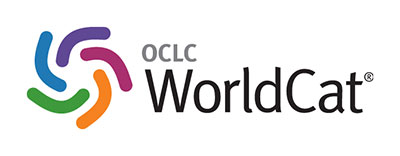The Effectiveness of Plastic Waste Management Based on The Legal System in Indonesia
DOI:
https://doi.org/10.28932/di.v15i1.6596Keywords:
Plastic Waste Management, Soil Pollution, Laws and RegulationsAbstract
The increasing use and consumption of plastic in this modern era is causing various problems for the environment. Plastic waste is difficult to decompose and its management is ineffective, resulting in soil pollution which is increasing day by day. The implementation of laws and regulations governing the management of plastic waste was found not to be running effectively. This article will review normatively the various rules regarding waste management, especially plastic waste in Indonesia. The review and analysis of this research was carried out using normative legal research methods by examining various relevant laws and regulations. The purpose of this research is to analyze how Indonesian environmental law regulates plastic waste management in Indonesia as well as the direction of regulatory policies related to plastic waste management in Indonesia to prevent soil pollution. The main findings reveal that there is still a lack of effectiveness in waste management and the absence of laws and regulations that specifically regulate the management of plastic waste. Furthermore, this article attempts to outline the policy direction of laws and regulations in managing plastic waste to prevent further soil contamination in Indonesia. The absence of special regulations for plastic waste management is an obstacle for the government to implement effective waste management.Downloads
References
Books
Hamzah, Andi. Penegakan Hukum Lingkungan. Jakarta, Sinar Grafika, 2005.
Selke, Susan. E M and John D. Culter. Plastics Packaging. In: Plastic Packaging: Properties, Processing, Applications, and Regulations. Cincinnati, Ohio, USA, Hanser Publications, 2016.
Safitri, Pramudya A., et al. Statistik Lingkungan Hidup Indonesia 2018: Pengelolaan Sampah. Jakarta, Badan Pusat Statistik, 2018.
Sumaatmadja, H. Nursid. Manusia Dalam Konteks Sosial, Budaya dan Lingkungan Hidup. Bandung, Alfabeta, 2012.
Journals
Atasu, Atalay. “Operational Perspectives on Extended Producer Responsibility.” Journal of Industrial Ecology, Vol. 23, No. 6, 2018, pp. 744-750. https://doi.org/10.1111/jiec.12816.
Ayu, Bumi and Mella Ismelina F. Rahayu. “Perlindungan Hukum Terhadap Hak Kepemilikan Tanah Adat Kei.” Jurnal Bina Hukum Lingkungan, Vol. 3, No. 2, pp. 279-293, https://doi.org/10.24970/bhl.v3i2.81.
Fasa, A. W. H. “Aspek Hukum Dan Kebijakan Pemerintah Indonesia Mengenai Ekonomi Sirkular Dalam Rangka Mencapai Tujuan Pembangunan Berkelanjutan.” Rechtsvinding, Vol. 10, No. 3, 2021, pp. 339–357. http://dx.doi.org/10.33331/rechtsvinding.v10i3.774.
Hysa, E., et al. “Circular economy innovation and environmental sustainability impact on economic growth: An integrated model for sustainable development.” Sustainability, Vol. 12, No. 12, 2020, pp. 1–16, https://doi.org/10.3390/su12124831.
Ismelina, Mella and Anthon F. Susanto. “Paradigma Relasi Manusia dan Lingkungan Hidup Berbasis Kearifan Lokal di Masa Pandemi Covid-19.” Bina Hukum Lingkungan, Vol. 5, No. 3, 2021, pp. 483-493, https://doi.org/10.24970/bhl.v5i3.212.
Jambeck, Jenna R., et al. “Plastic waste inputs from land into the ocean.” Science, Vol. 34, No. 6223, 2015, pp. 768-771, https://doi.org/10.1126/science.1260352.
Karuniastuti. “Danger of Plastic Waste on Human Health and Environment.” Forum Technology, Vol. 3, No. 1, 2012, pp. 6-14.
Kementerian Keuangan Republik Indonesia. “Bumi Dalam kantong Plastik.” Media Keuangan Transparansi Informasi Kebijakan Publik, Vol. 14, No. 144, 2019.
Maskun, Hasbi Assidiq, et al. “Tinjauan Normatif Penerapan Prinsip Tanggung Jawab Produsen dalam Pengaturan Tata Kelola Sampah Plastik.” Jurnal Bina Hukum Lingkungan, Vol. 6, No. 2, 2022, pp. 184-200, https://doi.org/10.24970/bhl.v6i2.239.
Pertiwi, Andarani, et al. “Preliminary Study on Plastic Waste Handling in Semarang City-Indonesia: Estimated Generation and Existing Management.” E3S Web of Conferences. Vol. 73, 2018. pp. 1-5, https://doi.org/10.1051/e3sconf/2018730.
Rafidah and Ahmad Ridho Ismail. “Pemanfaatan Limbah Plastik Menjadi Bahan Bakar Minyak.” Jurnal Sulolipu, Vol. 18, No. 2, 2018, pp. 216-222, https://doi.org/10.32382/sulolipu.v18i2.1161.
Rahayu, Mella Ismelina Farma, et al. “Gerakan Sosial Pemberdayaan Hukum Dalam Pelestarian Fungsi Lingkungan Hidup Melalui Metode Patanjala.” Bina Hukum Lingkungan, Vol. 2, No. 1, 2017, pp. 47-56, https://doi.org/10.24970/bhl.v2i1.48.
Rahmayani, Chanidia Ari and Aminah. “Efektifitas Pengendalian Sampah Plastik Untuk Mendukung Kelestarian Lingkungan Hidup di Kota Semarang.” Jurnal Pembangunan Hukum Indonesia, Vol. 3, No. 1 2021, pp. 18-33, https://doi.org/10.14710/jphi.v3i1.18-33.
Sahil, J, et al. “Sistem Pengelolaan dan Upaya Penanggulangan Sampah di Kelurahan Dufa Dufa Kota Ternate.” Jurnal Bioedukasi, Vol. 4, No. 2. 2016, pp. 478-487, https://doi.org/10.33387/bioedu.v4i2.160.
Syarif, R., et al. "Pengenalan Konsep Ekonomi Sirkular Melalui Webinar - Ekonomi Sirkular: Solusi Masalah Persampahan di Indonesia." Celebes Journal of Community Services, Vol. 1, No. 1, pp. 28-35, https://doi.org/10.37531/celeb.v1i1.176.
Proceedings
Kuswardhani and Zulhelfa. “The Effect of Government Policy on Using Fewer Plastic Bags Towards Society’s Awareness of Going Green.” Proceedings of The Asia Tourism Forum: 2016-The 12th Biennial Conference of Hospitality and Tourism Industry in Asia, 2016.
Law and Regulations
Undang-Undang Nomor 18 Tahun 2008 tentang Pengelolaan Sampah.
Peraturan Menteri Lingkungan Hidup Republik Indonesia Nomor 75 Tahun 2009 tentang Peta Jalan Pengurangan Sampah oleh Produsen.
Online Resources
Badan Pusat Statistik. “Jumlah Penduduk Pertengahan Tahun 2020-2022.” bps.go.id, https://www.bps.go.id/indicator/12/1975/1/jumlah-penduduk-pertengahan-tahun.html.
Kementerian Lingkungan Hidup dan Kehutanan Republik Indonesia (KLHK RI). “Capaian Kinerja Pengelolaan Sampah.” KLHK RI, https://sipsn.menlhk.go.id/sipsn/public/data/capaian.
National Plastic Action Partnership (NPAP). “Radically Reducing Plastic Pollution in Indonesia: A Multistakeholder Action Plan National Plastic Action Partnership.” NPAP Insight Report, April 2020 https://globalplasticaction.org/wp-content/uploads/NPAP-Indonesia-Multistakeholder-Action-Plan_April2020.pdf.
Cordova, Muhammad Reza, et al. “Naskah Akademik Inisiasi Data Sampah Laut Indonesia Untuk Melengkapi Rencana Aksi Nasional Penanganan Sampah Laut Sesuai Peraturan Presiden RI No.83 Tahun 2018.” Pusat Penelitian Oseanografi Lembaga Ilmu Pengetahuan Indonesia, 2019, https://sampahlaut.id/wpcontent/uploads/2020/02/Naskah-Akademik-Inisiasi-Data-Sampah-Laut-Lembaga-Ilmu-PengetahuanIndonesia-LIPI.pdf.
World Economic Forum. “The new plastic economy: Rethinking the Future of Plastics.” World Economic Forum Industry Agenda, January 2016, http://www3.weforum.org/docs/WEF_The_New_Plastics_ Economy.pdf.
Puspita, Ratna. “KLHK: Ada Daerah Hanya Ikut-ikutan Aturan Pengurangan Plastik.” Republika, https://www.google.com/amp/s/m.republika.co.id/amp/qgc3hj428.
Downloads
Published
How to Cite
Issue
Section
License
Copyright (c) 2023 Edy Suasono, Arsy Linardi, M Valdin Yudinata, Frida Juliany Hasibuan, Dedy Yunizar, Subur Yohana

This work is licensed under a Creative Commons Attribution 4.0 International License.













